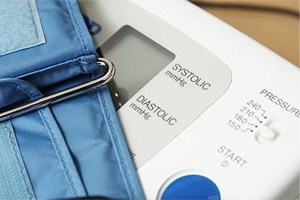 The National Institute for Health and Care Excellence (NICE) has expanded its role to encompass the work of the NHS Technology Adoption Centre (NTAC) in a bid to accelerate the take-up of new means of delivering healthcare.
The National Institute for Health and Care Excellence (NICE) has expanded its role to encompass the work of the NHS Technology Adoption Centre (NTAC) in a bid to accelerate the take-up of new means of delivering healthcare.
Set up in 2007, the remit of the five-person NTAC team was to smooth the passage of technologies, such as surgical implants or diagnostic and monitoring devices, into day-to-day NHS use.
NICE already evaluates them and NTAC’s work will now go on under the NICE umbrella, with a changed name – the Health Technologies Adoption Programme (HTAP) – and £715,000 in funding for this financial year from the Innovation Directorate at NHS England.
The move was recommended by the government’s wide-ranging and influential Innovation, Health and Wealth report in 2011 and needed approval from the Department of Health, which it received in March.
The idea is that new technologies that have already demonstrated clear benefits to patients may be, for a variety of complex reasons, hard to put into practice in NHS set-ups – perhaps because of staff training issues or doubts over the business case for doing so.
One of HTAP’s key functions will therefore be to develop guides which explain in detail how the NHS can sustainably introduce NICE-recommended technologies into routine clinical use.
Since NTAC also worked directly with companies to support their products’ entry into the public health sphere, HTAP will give medical device and diagnostics suppliers support in navigating the NHS.
NICE already has a scientific advice programme which provides consultancy and guidance to manufacturers and HTAP will work with, and expand on, this to provide more effective routes to implementing new technologies.
“NTAC’s work over the past six years has provided an extremely close fit with NICE,” explained Sally Chisholm, former chief executive of NTAC and now programme director of HTAP, and she said that joining NICE was “closing the loop”.
Government and health charities spend over £2 billion a year on research, but the NHS often lags behind other countries in terms of implementation, she added.
“Hospitals often try and fail to introduce new technologies – and it is sometimes very difficult to understand the reasons,” Chisholm went on. “Understanding and being able to negotiate through the technology adoption process is vital, and it is exactly this support that we will be providing doctors and managers in the NHS.”
Professor Gillian Leng, NICE’s deputy chief executive, said the organisation was “pleased” to take on this new responsibility: “Despite the often considerable potential of new technologies to improve patient health and increase NHS productivity, sometimes the benefits are not made available to patients quickly enough.”
“We hope there will be a more seamless integration of NICE guidance and practical support and information at a local NHS level,” she concluded.




